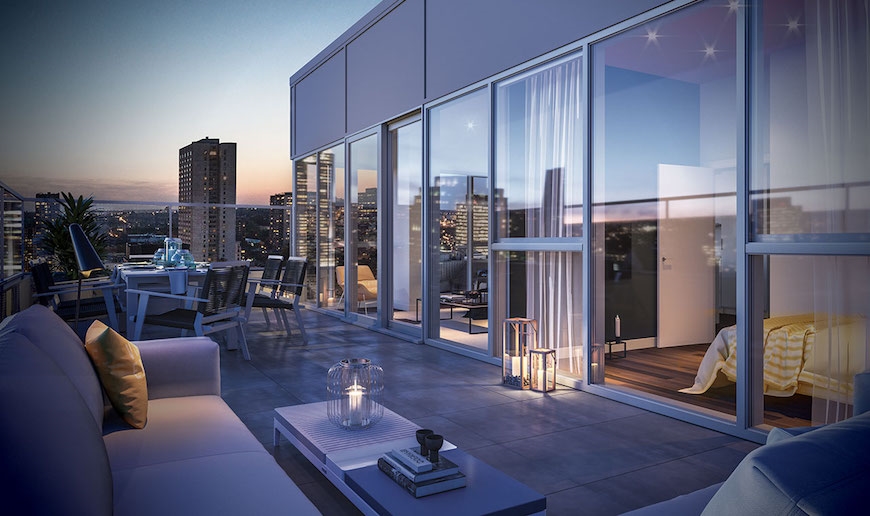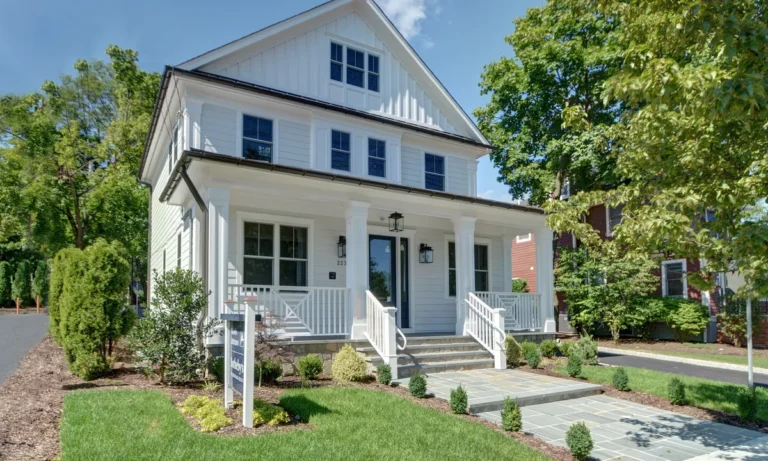Montreal is a city of paradoxes. It’s a place where old-world charm meets modern innovation, where historical architecture blends seamlessly with contemporary skyscrapers. The city is a hub for arts and culture, commerce, and real estate. Picture this: a young couple walks down Rue Saint-Paul, mesmerized by the cobblestone streets and the beautifully restored heritage buildings tower above them. They’re searching for their first home, but in a city like Montreal, where real estate prices have steadily grown, their dream home might be more challenging to find than expected. The Montreal real estate market has evolved dramatically over the years, and like this couple, many find themselves navigating a competitive and ever-changing landscape.
Montreal’s real estate market has experienced peaks and valleys over the years. It’s shown incredible resilience in the post-pandemic world, standing out even as other Canadian markets have fluctuated. As we explore the state of Montreal real estate in 2024, we’ll dive into the key factors driving this dynamic market, analyzing housing trends, price trajectories, and the future outlook for buyers and investors alike.
A Steady Ascent: MMontreal’sHousing Market in Numbers
MMontreal’s real estate market has consistently grown over the past decade, and post-pandemic demand has accelerated the trend. According to the Quebec Professional Association of Real Estate Brokers (QPAREB), as of 2023, the average price of a single-family home in Greater Montreal stood at $558,000, marking a 10% increase compared to the previous year. Low interest rates, a tight housing supply, and increased demand from local and foreign buyers primarily drove this growth.
However, the increase in property prices is standard across all neighborhoods. For instance, the Plateau-Mont-Royal area, known for its trendy cafes and vibrant nightlife, saw higher-than-average price hikes, with homes averaging close to $700,000. Meanwhile, more affordable options can be found in boroughs like Hochelaga-Maisonneuve, where homes average around $450,000.
Condo sales, representing a significant portion of the Montreal real estate market, also boosted. 2023, the average condo price rose to $395,000, up 8% from the previous year. While some of this growth can be attributed to the lingering effects of pandemic-era trends (such as remote work and a desire for more living space), MMontreal’scondo market remains an attractive option for first-time buyers and investors alike, particularly given the ccity’srelatively affordable prices compared to other major Canadian cities like Toronto and Vancouver.
Factors Driving MMontreal’sReal Estate Boom
Several key factors have contributed to MMontreal’sthriving real estate market. These include:
- Affordable Prices Compared to Other Major Cities: Despite recent price hikes, Montreal remains relatively affordable compared to cities like Toronto and Vancouver. In Toronto, the average home price in 2023 was $1.2 million, more than double that of Montreal. As a result, Montreal has become an attractive option for buyers and investors looking to get more value for their money.
- Economic Growth and Job Creation: Montreal has seen steady economic growth driven by the technology, education, and finance sectors. Companies like Ubisoft, Lightspeed, and Element AI have expanded their operations in the city, creating jobs and attracting a wave of young professionals seeking employment opportunities and a high quality of life.
- Increased Immigration: QQuebec’simmigration policies have directly impacted MMontreal’shousing market. The province has consistently welcomed newcomers, many of whom settle in Montreal. As of 2023, approximately 48,000 new immigrants arrived in Quebec, most opting for life in the city. This influx of residents has driven demand for housing, particularly in neighborhoods with multicultural solid communities such as Côte-des-Neiges and Parc-Extension.
- Low-Interest Rates: Low interest rates have been a significant driver behind the recent surge in home prices. Many buyers, seeking to take advantage of historically low borrowing costs, rushed into the market, driving up demand and, subsequently, prices. However, with the Bank of Canada raising interest rates in late 2023, this trend may slow in 2024, potentially cooling off the market slightly.
The Impact of Short-Term Rentals on Housing Availability
One topic that has sparked debate in MMontreal’s real estate landscape is the effect of short-term rental platforms like Airbnb on housing availability and affordability. Montreal is a popular tourist destination, and many homeowners have turned to short-term rentals to capitalize on the city’s booming tourism industry. While this can be profitable for property owners, it has created a housing crunch in some city regions, particularly downtown, and neighborhoods like Le Plateau and Mile End, where long-term rental availability has decreased.
According to a report by the City of Montreal, over 10,000 housing units were listed on short-term rental platforms as of 2023. While this generates income for property owners, it has also drawn criticism from housing advocates who argue that it reduces the supply of homes available for long-term renters, thus driving up rental prices. The city has since introduced tighter regulations on short-term rentals, but enforcement remains a challenge, particularly in areas where tourism is a primary driver of the local economy.
The Rental Market: An Increasingly Competitive Space
MMontreal’s rental market has also become more competitive for those not looking to buy in recent years. A report by CMHC (Canada Mortgage and Housing Corporation) indicated that Montreal’s vacancy rate was 2.3% as of 2023, down from 2.9% in 2022. The city has long been known for its relatively affordable rents, but this reputation is slowly changing. In 2023, the average rent for a two-bedroom apartment in Montreal was approximately $1,200, up 5% from the previous year.
MMontreal’s retail market, traditionally characterized by lower costs than other major cities, is facing pressures from increased demand. The rise in rental prices can be attributed to various factors, including the influx of new residents, insufficient new rental construction, and the influence of short-term rental platforms.
The Future of Montreal Real Estate: What to Expect in 2024 and Beyond
Looking ahead, experts have mixed opinions about Montreal’s real estate market. On one hand, rising interest rates could cool the market slightly, making it more challenging for some buyers to secure financing. The Bank of Canada’s decision to raise interest rates in late 2023 has already led to a slight slowdown in home sales, and further hikes could lead to more price stabilization in 2024.
On the other hand, the fundamental factors that have driven Montreal’s real estate boom—affordability, immigration, and economic growth—are unlikely to change. As such, demand for housing in Montreal is expected to remain strong in the long term, especially as more people move to the city in search of jobs and a high quality of life.
Montreal’s housing market could also benefit from government initiatives to increase the housing supply. The Quebec government has pledged to invest $1.8 billion into affordable housing projects over the next five years, focusing on building new units and renovating existing ones. These efforts could help alleviate pressure on the housing market, particularly for low—and middle-income residents.
Conclusion: A City in Transition
As MMontreal’s real estate market continues to evolve, it remains one of Canada’s most dynamic and intriguing markets. Whether you’re a first-time homebuyer, a seasoned investor, or someone looking to rent in the city, navigating MMontreal’sreal real estate landscape requires careful consideration of various factors. At the same time, challenges such as rising prices and limited availability persist; the city’s unique blend of culture, history, and economic opportunity ensures that it will remain an attractive option for many.
With its old-world charm and modern conveniences, Montreal continues to captivate locals and newcomers alike. The young couple walking down Rue Saint-Paul might find their dream home after all—if they’re willing to navigate the complexities of this ever-changing market.
















